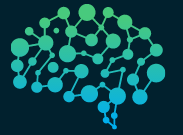AI Impact on Judiciary
US Chief Justice John Roberts, in the Federal Judiciary’s annual report, addressed concerns about the impact of artificial intelligence (AI) on the judicial system, emphasizing that while AI won’t replace judges, it will transform their work. Roberts dismissed predictions of judicial obsolescence but acknowledged ongoing technological changes.
He highlighted the irreplaceable value of human judgment, citing nuanced factors like a trembling hand or a momentary hesitation that machines might struggle to interpret accurately. Roberts emphasized public trust in human decision-making over AI, particularly in evaluating subtle nuances.
While recognizing AI’s potential benefits, Roberts expressed concerns about drawbacks, such as the risk of AI-generated fabricated answers. He cited instances where lawyers used AI-powered tools to submit briefs referencing imaginary cases. Privacy concerns and the potential for bias in discretionary decisions like flight risk and recidivism were also noted.
Despite these apprehensions, Roberts acknowledged the positive role of AI in democratizing access to legal advice and tools, especially for those who cannot afford legal representation. The Chief Justice’s reflections underscored the need for a balanced approach, harnessing AI’s benefits while managing potential risks in the evolving legal landscape.
Must Read..
AI will be the next ‘tidal wave’ after internet: Microsoft CEO

